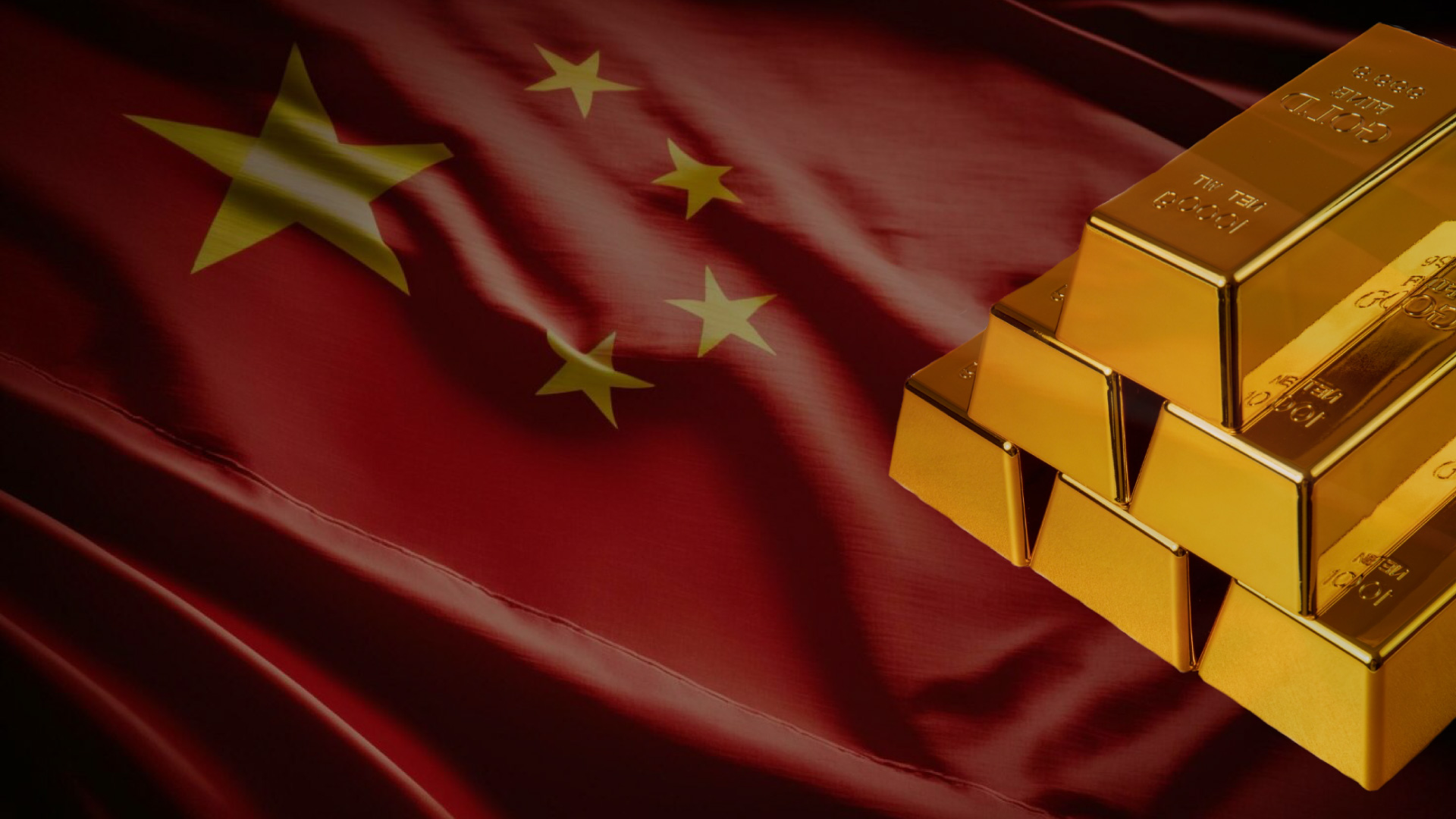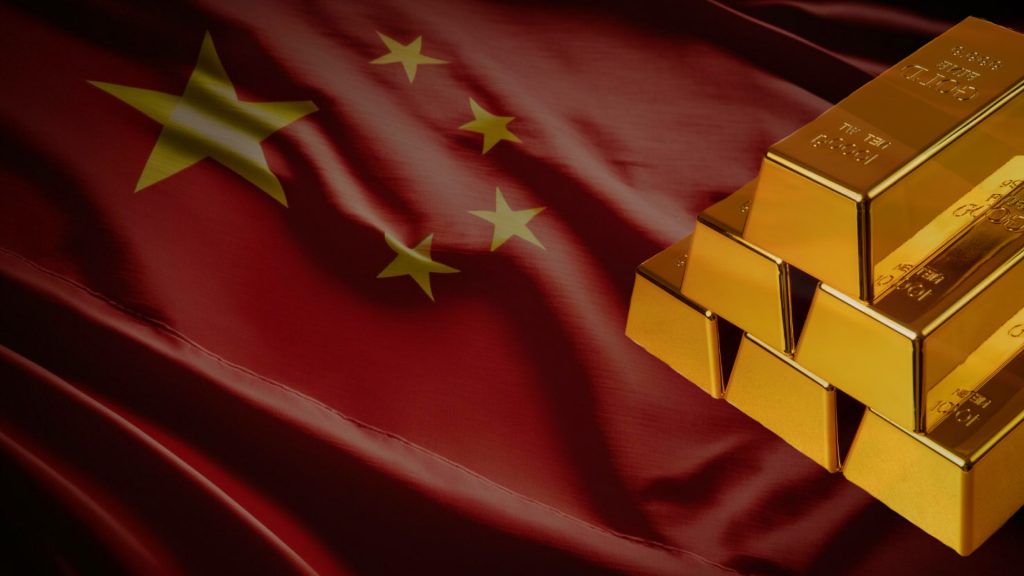Why Does China Buy so Much Gold?


China, like many other countries, seeks to diversify its foreign exchange reserves away from traditional currencies such as the US dollar. Gold is considered a stable store of value and a hedge against currency devaluation, making it an attractive asset for central banks to hold as part of their reserves.
Gold has a long history as a store of wealth and a safe haven asset. In times of economic uncertainty or volatility, gold often retains its value better than fiat currencies or other assets. China’s significant gold purchases may reflect its desire to preserve the purchasing power of its reserves amid global economic uncertainty.
As a major global economic power, China may also view gold as a strategic asset with geopolitical significance. Holding substantial gold reserves can enhance China’s financial stability and global influence, especially in the context of international trade and geopolitical tensions.
China is one of the world’s largest gold producers, with a significant domestic gold mining industry. Purchasing gold can support domestic producers and contribute to the development of China’s gold market infrastructure.
Gold holds cultural significance in Chinese society, where it is traditionally associated with wealth, prosperity, and good fortune. Demand for gold jewelry, ornaments, and gifts remains robust in China, both as a cultural tradition and as an investment.
Beyond central bank purchases, Chinese individuals and institutions also buy gold for investment purposes. Gold is seen as a tangible asset that provides diversification within investment portfolios, offering a hedge against inflation and financial market volatility.
China’s significant gold purchases may also be influenced by its long-term monetary policy objectives and ambitions for the internationalization of the Chinese yuan (renminbi). Accumulating gold reserves can enhance the credibility of China’s currency and support its aspirations for greater global reserve currency status.
The price of gold is influenced by various factors beyond inflation. These include supply and demand dynamics, geopolitical events, interest rates, currency movements, and investor sentiment. Changes in these factors can cause gold prices to fluctuate independently of inflationary pressures.
Gold prices can be driven by speculative trading activity and changes in market sentiment, which may not always align with inflationary trends. Factors unrelated to inflation influence short-term fluctuations in gold. For example, investor perceptions of risk or changes in global economic conditions.
Real interest rates, which are nominal interest rates adjusted for inflation, can impact the attractiveness of gold as an investment relative to other assets. When real interest rates are low or negative, gold may become more attractive as an inflation hedge because the opportunity cost of holding non-interest-bearing gold decreases. Conversely, when real interest rates are high, investors may prefer interest-bearing assets over gold.
Gold is just one option for hedging against inflation. There are other assets and investment strategies that may provide more effective inflation protection in certain market conditions. These alternatives may include inflation-indexed bonds (such as Treasury Inflation-Protected Securities or TIPS), real estate, commodities, or inflation-sensitive equities.
In addition to inflationary risks, economies can also face deflationary pressures, where prices decline over time. Gold may not provide effective protection against deflation, as its value could also decrease during periods of widespread economic contraction and falling prices.
Things such as global economic factors and developments in international financial markets are also influencing gold prices. Inflationary pressures in one country or region may not necessarily translate into corresponding movements in gold prices if other factors, such as currency movements or geopolitical events, exert greater influence on the market.
Gold and Bitcoin represent two very different facets of investment, each with its own characteristics, benefits, and risks. Gold’s enduring value and stability make it a favored asset for conservative investors, while Bitcoin’s innovative nature and growth potential attract those looking for high returns and who believe in the future of digital currencies. As the financial landscape evolves, both assets will likely continue to play significant roles, albeit catering to different investor preferences and world views.
If you are curious to know more about this market, our analysts dealing with Chinese gold demand are able to answer further questions you may have about it. Reach out to us by clicking on the button below.
Latest articles
Tool and strategies modern teams need to help their companies grow.
Invite users to stay updated with exclusive insights and market trends by subscribing to the newsletter.
InProved Pte. Ltd. (“InProved”, UEN 201602269C). InProved is regulated by the Ministry of Law (“Minlaw”) and holds a Precious Stones and Precious Metals license for dealing in bullion products (PSPM License PS20190001819). For additional legal and privacy related information related to InProved, please visit are terms and conditions.
Our products and services are only available to Accredited Investors. Investing in bullion involves risk, and there is always the potential of losing money. Certain bullion products are not suitable for all investors. The rate of return on investments can vary widely over time, especially for long-term investments. Past performance is no guarantee of future results. Before investing, consider your investment objectives and any fees and expenses that may be charged by InProved and any third-party stakeholders. The content provided herein is for informational purposes only and is not investment or financial advice, tax or legal advice, an offer, solicitation of an offer, or advice to buy or sell or hold bullion products. This material has not been reviewed by the Minlaw.
Statements made are not facts, including statements regarding trends, market conditions and the experience or expertise of the author or quoted individual(s) are based on current expectations, estimates, opinions and/or beliefs. Opinions expressed by other members on InProved should not be viewed as investment recommendations from InProved. Endorsements were provided at the request of InProved. InProved is not affiliated with and does not purport to own or control any third-party content linked herein.
Copyright © 2025 InProved Pte Ltd (UEN 201616594C, PSPM license PS20190001819)
